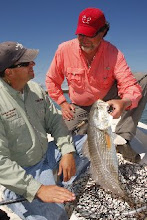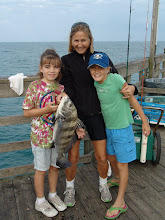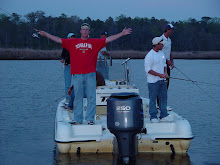Today in North Carolina -- Capitol Press Association -- 919-836-2858 Written January 16, 2012, – Fisheries Decisions Have Broad Economic Consequences, by Scott Mooneyham
For much of my adult life, the cool, shorter days of late October and November typically involved one or two fishing trips to the Morehead City area in search of saltwater trout and puppy drum.
The cooler waters at that time of year cause the fish to begin piling out of the sounds, allowing fishermen to target these favored species in and around inlets. My friend, Jack, and I talked about going this year, but decided against it. "Why bother? They won't let you keep any," he said.
His chief complaint was about the North Carolina Marine Fisheries Commission's decision to further reduce the speckled sea trout daily creel limit to four fish. A couple of years earlier, the commission had trimmed the limit from 10 to six fish. The limit on gray trout had already been dropped to one fish per day. For several years now, the creel limit for red drum has been one fish per day, and only fish in the 3 to 7 lb.-class can be kept.
So, for inshore and near-shore fishermen in smaller boats, the opportunities to catch and take home these fish in any numbers have diminished dramatically.
I point that out not as criticism of fisheries officials or the nine-member commission. They are often caught between trying to manage dwindling fish populations and an uncompromising commercial fishing industry that views most commercial restrictions as an unwarranted attack sure to destroy life as we know it. To those commercial fishermen, my buddy Jack is a "rich fat cat" who only wants to "keep all the fish for himself." (That’s how some commercial fishermen recently described recreational fishermen unhappy with the current state of inshore coastal fisheries.)
Actually, he's a mechanic who works at an electrical power plant and whose chief recreational investment is his center-console boat. The name-calling has come amid a legislative proposal to put speckled trout, red drum and striped bass off limits to commercial fishermen, to place a game fish-only status on those species.
It's unclear whether the proposal has broad support among state legislators.
Eliminating a striped bass commercial fishery -- given rising catch numbers and a commercial value four times greater than the other two species -- seems especially harsh.
We weren't alone.



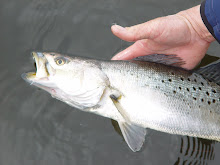



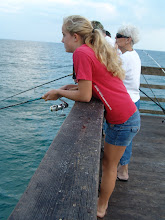

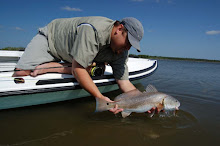.jpg)


